CUC eNews: June 11, 2019 – Issue 94
In This Issue:
- CUC Response to the Final Report of the National Inquiry into Missing and Murdered Indigenous Women and Girls (MMIWG)
- Meet the New CUC Board of Trustees
- Serving with Spirit: 2019 Leadership Workshop Series
- Minister Sees Opportunities in Congregational Collaboration
- An Update on Refugee Sponsorship from the Sponsorship Agreement Holder (SAH) Annual National Conference
- Search for Music Director for Comox Valley Unitarian Fellowship
- Upcoming Events You Won’t Want to Miss
CUC Response to the Final Report of the National Inquiry into Missing and Murdered Indigenous Women and Girls (MMIWG)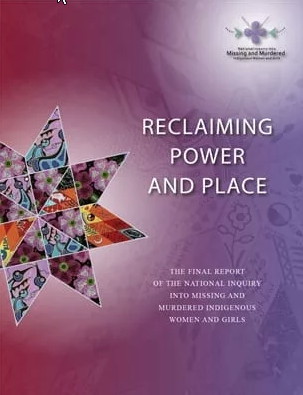
In response to the final report of the National Inquiry into Missing and Murdered Indigenous Women, the CUC National Voice Team has put forward this statement:
CUC Response to the Final Report of the National Inquiry into Missing and Murdered Indigenous Women and Girls (MMIWG)
June 6, 2019
The Canadian Unitarian Council acknowledges the systemic and ongoing nature of colonization of Indigenous peoples, land, and resources on this land. We are becoming more aware of the many ways in which colonization unjustly privileges settlers at the expense of Indigenous peoples. We acknowledge the findings and calls to justice of the Missing and Murdered Indigenous Women (MMIW) Final Report, and that these require immediate attention.
As Unitarian Universalists, we have also taken a stand for gender equality and the rights of LGBTQ+ peoples – values that intersect with the National Inquiry into Missing and Murdered Indigenous Women and Girls’ (MMIW) Calls for Justice.
The term ‘genocide’ is used in this report (read the reflection on ‘genocide’ in the Executive Summary) to describe our collective actions towards Indigenous peoples. As challenging as it is to acknowledge this term, in particular towards Indigenous women and girls, we accept this assessment based on the 1948 United Nations Convention on the Prevention and Punishment of the Crime of Genocide. We are mindful that resistance to the use of ‘genocide’ may be linked to beliefs about our identity as a nation and denial of the facts of our shared history. It may also be linked to a mindset that emphasizes individual intention/action while minimizing the role of systemic influences in racism and privilege.
Chief Commissioner Marion Buller has stated that an “absolute paradigm shift is required to dismantle colonialism in Canadian society”. We recognize that the paradigm shift asked of settlers may cause us to feel uncomfortable and vulnerable. While we may not have individually constructed the racist system that is in place, we are each complicit in sustaining it until we take steps to change it. Therefore, we take ownership for our part in a system that has resulted in Indigenous women and girls:
-
- being 12 times more likely to go missing than any other demographic;
- being 16 times more likely to be killed or disappear than white women;
- constituting almost 25 percent of all female homicides in Canada between 2001-2015.
As Unitarian Universalists we are committed to studying this document with the intent of taking action on the 231 Calls to Justice starting with item 15.3, which urges us to read the final report, take other steps to educate ourselves, and call on our governments to take action.
From the Canadian Unitarian Council National Voice Team, which consists of the President of the CUC Board of Trustees, the President of the UU Ministers of Canada, and the CUC Executive Director. Contact: executivedirector@cuc.ca
Resources for reading and action:
-
- Be informed and educated:Executive Summary of the Final Report
- CBC article: “231 Imperative Changes: The MMIG’s Calls for Justice”
- United Nations Office on Genocide Convention and Responsibility to Protect
- Government of Canada – Indigenous Peoples
- Hold the government accountable for follow-up action:
- Contact your Member of Parliament
- Global News: “Prime Minister Promises Action”
- CBC article: “Prime Minister Says Deaths and Disappearances of Indigenous Women and Girls Amount to Genocide”
- Be informed and educated:Executive Summary of the Final Report
Download the CUC Response to the MMIW Report
Meet the New CUC Board of Trustees
On May 11, delegates to the CUC’s Annual General Meeting (AGM) elected the new CUC Board of Trustees. Here’s a selfie they took at the annual board meeting held that same weekend.
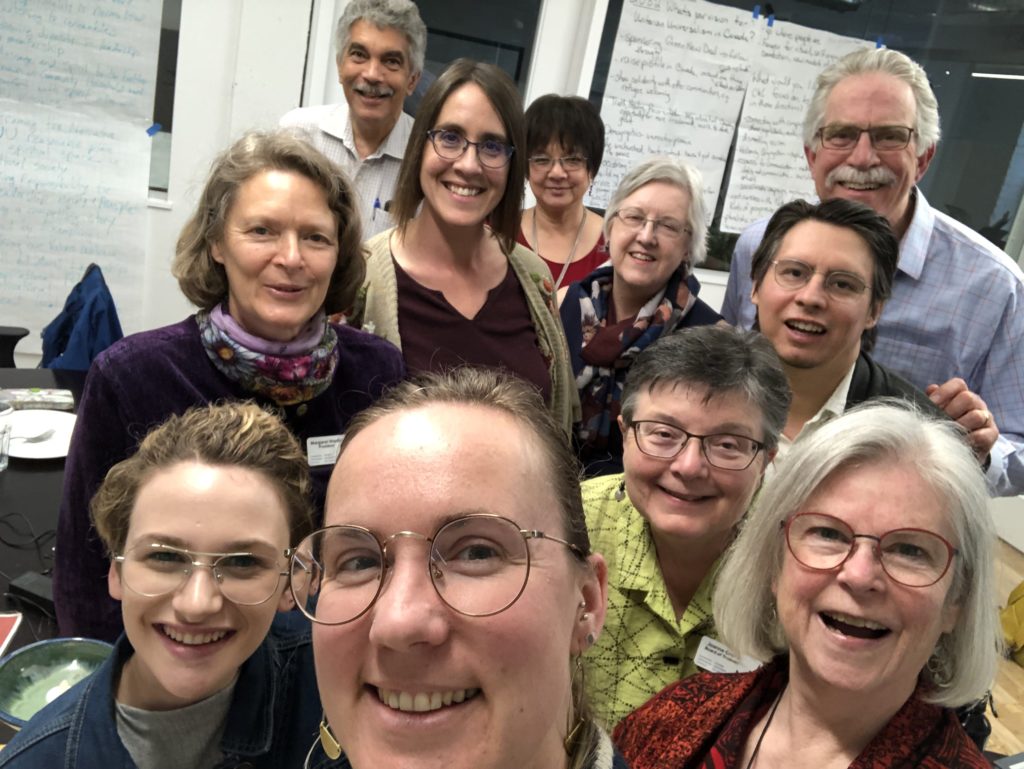
Front from L to R: Liv Gardiner (Sr. Youth Observer), Tanya Cothran (Central region), Joanne Green (Treasurer, Western region), Rev. Debra Thorne (Minister Observer) / Back from L to R: Margaret Wanlin (President, Western region), Michael Scales (BC region), Kiersten Moore (BC region), Vyda Ng (Executive Director), Glenna Hanley (Eastern region), Rev. Rodrigo Solano Quesnel (Central region), Chuck Shields (Vice-President, Eastern region), not pictured: Fiona Heath (Jr. Youth Observer)
CUC Board members have a lot of stuff going on in their lives, in addition to their volunteer work for the CUC Board. When asked for something about themselves that UUs might not know, some of the board members shared:
Margaret Wanlin: “I love canoe tripping in the precious, expansive wilderness. And I enjoy portages too, as long as they are not too long.”
Chuck Shields: “TGIF has a special meaning for me. My wife and I have, for several years, been the main coordinators of a gathering every Friday of a group of friends to watch a movie and go to dinner. There are 14 others in the group and ones available any given Friday can vary from just my wife and me to everyone. Dinner after the film gives us a chance to reflect on the film, in addition to keeping up with each other’s activities. The Friday Film Group has ensured that we are up to date on most Oscar nominees and with Ottawa’s burgeoning dining scene.”
Joanne Green: “My mother, Helen Green, was a past treasurer of the CUC in the early 1970s when bookkeeping was done by hand. Her service to Unitarian Universalism over 58 years was an inspiration to me. One other interesting thing about me is that I was a taxi driver in the early 1970s in Calgary. This was a time of change for me and driving the taxi afforded plenty of time for thinking while driving around the city.”
Kiersten Moore: “I love dancing, particularly partner dancing, but also dancing to 80’s and 90’s music while I cook dinner.”
Liv Gardiner: “I like to turn life into a musical. When someone says something and it reminds me of a song, I gotta sing it!”
Fiona Butler: “I try to always wear socks with a fun design. I have ones with flowers, lobsters and silly phrases. Some of my favourite presents I’ve received have been socks.”
Glenna Hanley: “I played a bit of basketball in Jr. high and high school, not a star or anything like that. But other than a rare occasion to shoot some hoops, I have never played since. In 2017, my two grandkids were visiting and we had a chance to shoot some hoops at a neighbour’s house. Basketball is not big in Norway where they live. But this past year, my grandson (age 11) took up the game. My son says he is looking forward to playing with me when they come for a vacation this summer. We shall see how long I last. Go Raptors!”
Tanya Cothran: “I love swing dancing, in particular, Balboa swing. Balboa is a form of swing dancing developed on Balboa Island in California where my grandma grew up! On Sunday afternoons I can walk 20 minutes down to Grossman’s Tavern in Toronto and dance with friends to live jazz music!”
Michael Scales: “I have a son who lives in New Zealand with my youngest grandson, and I have a daughter who lives in South Africa with my three other grandchildren. As a result, I spend a lot of time on the internet and a lot of money on traveling.”
Rev. Rodrigo Solano Quesnel: “I like taking up a new musical instrument from time to time. Six years ago, I was in a samba band in Toronto, where I learned to play a two-tone cowbell (called “agogo” in samba). Now that I’m in Leamington, Ontario, I’ve joined a ukulele group, which I’d never done before. While it was daunting at first, it was very gratifying to learn new techniques – learning simple chords first and now getting into the more challenging ones. It’s exciting how, with support and guidance from my group peers, I can now play something I didn’t know a few months ago!”
Learn More About the Board of Trustees
Serving with Spirit: 2019 Leadership Workshop Series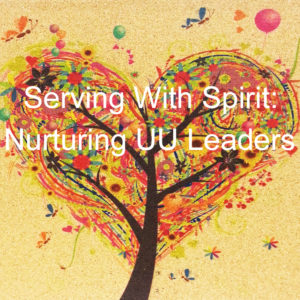
Serving with Spirit workshops provide spiritual and experiential learning as well as more practical skill-based tools. Participants will walk away from the retreats with a greater sense of the connection between themselves as Unitarians and as congregational leaders, and the knowledge of what congregational activities can nurture them spiritually.
The CUC is offering three regional Serving With Spirit Workshops coming up in July and August. Please note the deadlines for registration:
Serving With Spirit Nurturing UU Leaders – EAST, 3-day in-person retreat
July 26 – 28, registration deadline: June 24
Carleton University, Ottawa ON.
Serving With Spirit Nurturing UU Leaders – WEST, 3-day in-person retreat
August 9 – 11, registration deadline: July 10
Providence Renewal Centre, Edmonton, AB.
Serving With Spirit: Stronger Together, Planning for Partnership – Online & In-person (West) – 1-day workshop
August 10, registration deadline: July 10
Providence Renewal Centre, Edmonton, AB
Read Below “Minister Sees Opportunities…”
Minister Sees Opportunities in Congregational Collaboration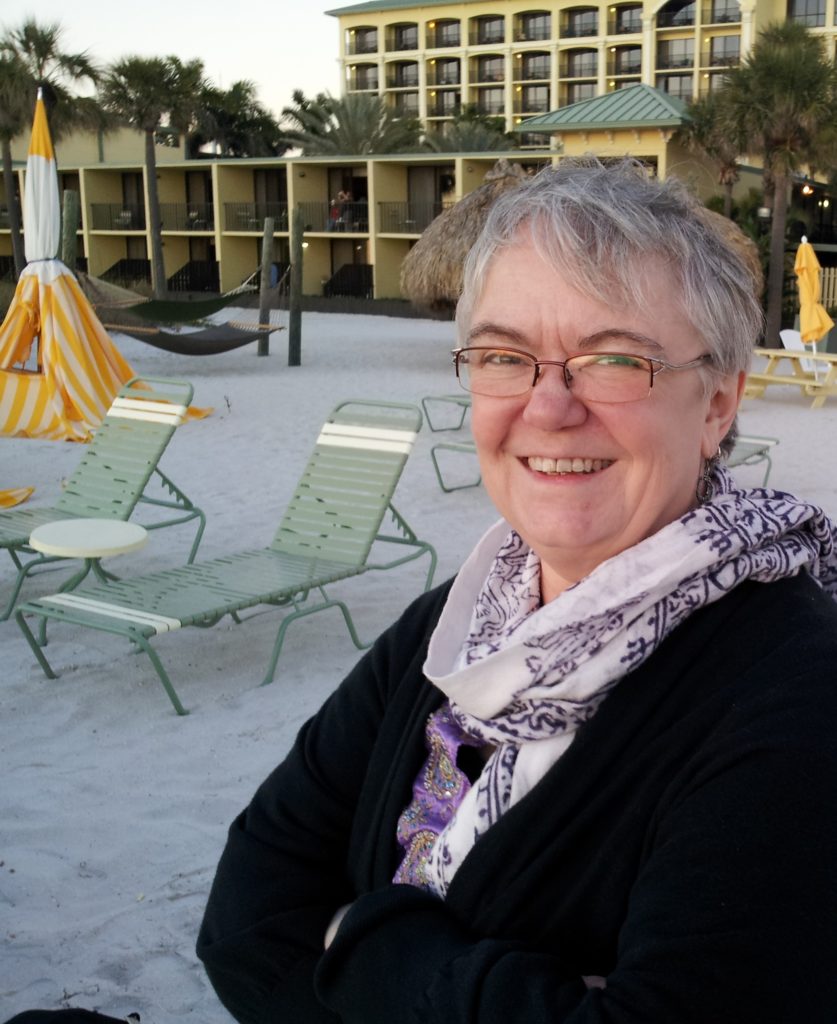
As a former staff lead for the Central East region of the Unitarian Universalist Association, Rev. Joan Van Becelaere has worked with congregations large and small, but they’ve all had one thing in common: the opportunity to benefit from collaboration. Collaboration will be the focus of Van Becelaere’s one day online and in-person workshop “Serving With Spirit: Stronger Together, Planning for Partnership”, because she believes it’s not just an opportunity for congregations today, but a necessity.
“The truth of the matter is if we don’t collaborate and cooperate with each other, then we’re going to be suffering,” she says. “We’re not going to be able to meet people with what they need, we’re not going to be able to maintain a stable congregational number, let alone grow.”
Van Becelaere doesn’t claim that collaborating with other congregations is a panacea for growth. But every congregation, she believes, has things they can both learn from and teach other congregations. Although the need to collaborate might seem more evident with smaller congregations, she believes members of larger ones will also benefit from the workshop by mutual learning and sharing.
“They have resources that they could share with the smaller ones,” she says. “Everybody’s got a strength – they will find that they’re surprised by what the smaller ones can share with them. Every church has a strength or else it wouldn’t exist”.
The workshop will lead participants through a process of determining their congregations’ strengths and weaknesses, looking at areas where they imagine collaboration would be helpful and then discussing the details of how this would work in practice. Van Becelaere has seen congregations share knowledge with each other as well as more practical things such as sheet music, bookkeeping services, and even bulk ordering toilet paper. The possibilities for collaboration, she believes, are virtually endless.
“Every group is different, every need is different, every situation is different,” she says. “There are no formulas for this”.
Register for Serving With Spirit: Stronger Together, Planning for Partnership
An Update on Refugee Sponsorship from the Sponsorship Agreement Holder (SAH) Annual National Conference
By Samia Tecle, CUC Refugee Support Staff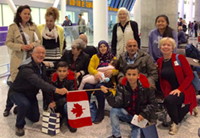
Last week, representatives from 116 Sponsorship Agreement Holders convened in Victoria, BC for the annual national Sponsorship Agreement Holder (SAH) conference. The Canadian Unitarian Council (CUC) had the privilege of participating in the conference.
Two major themes arose from the conference: 1) the application of Immigration, Refugees and Citizenship Canada’s (IRCC) Quality Assurance program to refugee sponsorship activities; and 2) the increase of fraudulent practices within the private sponsorship program. Since January 2019, SAHs have noted a significant increase in IRCC’s monitoring activities of sponsorship groups and activities. This is IRCC’s response to fraudulent practices by some private sponsors and refugees; IRCC confirmed that the monitoring will continue, and advise that sponsoring groups need to document financial and non-financial settlement support provided to newly arrived refugees. The documentation will be very helpful in the event that IRCC requests proof of whether financial and settlement support has been provided.
IRCC stated that monitoring activities are in place because many refugees are not receiving the minimum supports that are required under the private sponsorship program, ie., the resettlement agreement plans undertaken by sponsoring groups. IRCC also urged sponsoring groups to ensure that refugee documents provided are not fraudulent, as IRCC has noted an increase in the number of fraudulent documents received, and this has led to a rise in the number of applications which are rejected. In addition, IRCC reminded sponsors that they are prohibited from receiving funds from refugees at any point throughout the sponsorship process.
For congregations interested in sponsoring refugees, there are two special initiatives:
-
- The Blended Visa-Office Referred program (BVOR):
Under the BVOR program, refugees are referred to Canadian visa offices abroad directly by the United Nations Refugee Agency (UNHCR). Most of the refugees sponsored under this program are travel-ready, meaning screening has already happened, and individuals usually arrive in Canada within 1-4 months of submitting the application. BVOR is a cost-sharing program with the government. Sponsoring groups, however, are NOT able to identify refugees to be sponsored under the BVOR program. - The Rainbow Refugee Assistance Project (RRAP)
The RRAP program resettles those who are persecuted because of their sexual orientation, gender identity, gender expression or HIV status. IRCC supports LGBTQ+ sponsorships by providing partial funding, working with community partners, and increasing the number of spaces for these sponsorships.
- The Blended Visa-Office Referred program (BVOR):
Typically, under these programs, the government provides six months of income support and sponsors provide six months of income support. Until August 31, 2019, there is a special opportunity for groups sponsoring under these two initiatives to have the additional 6 months of financial support covered.
For more information on how to sponsor under the special fund, email refugee@cuc.ca.
In 2018, twenty-eight individuals from seven different countries arrived under CUC and congregational sponsorship. They settled in Mississauga, Toronto, Vancouver, Victoria, Ottawa, New Westminster BC, Guelph, Oakville, and Hamilton. In addition, the CUC works directly with Capital Rainbow Refuge in Ottawa, and, and in 2018, helped seven individuals find a home in Canada. More applications from 2018 and 2019 are in process, with the arrivals anticipated for this year.
The CUC would like to thank everyone who responded to our request in April 2019 to hear from you on ways we could improve CUC’s refugee sponsorship work. We have developed a communications strategy to respond to your requests.
If you have any questions and/or comments, please feel free to email refugee@cuc.ca.
Learn More About the CUC and Refugee Sponsorship
Search for Music Director for Comox Valley Unitarian Fellowship
The Comox Valley Unitarian Fellowship in British Columbia is looking for a musician with experience in leading singing and providing musical accompaniment, as well as offering other music at Unitarian community gatherings on first and third Sundays each month (September to June), $100/Sunday. Music to reflect Unitarian Universalist values.
Applications for this position are to be sent to the Administrative Coordinator: cvufcoord@gmail.com. Please include your contact information, relevant experience, and a letter stating why you think you would be suited for this position and its responsibilities.
Deadline for application: June 20.
Going to General Assembly (GA)? Check out the CUC’s FaceBook page for Canadian UUs going to GA.
Like the Canadian Unitarian Council on Facebook!
Upcoming Events 2019
Share what’s going on in your congregation. Contact communications@cuc.ca
Deadline: 14th of each previous month.
Youth and Young Adult
Online – Gathered Here: Young Adult Check-In, July 8, August 12, 8 p.m. ET
Gathered Here is a monthly online check-in and gathering for Canadian Unitarian Universalist young adults.
Serving With Spirit: Leadership Development
Serving With Spirit Nurturing UU Leaders – EAST, 3-day retreat, Friday, July 26 – 28
Carleton University, ON, Registration deadline: June 24
We invite you to a weekend to explore where you find the “springs” which fill your life’s well of energy, and how you can live out of that rich resource.
Facilitators: Revs. Peter Boullata and Linda Thomson
Serving With Spirit Nurturing UU Leaders – WEST, 3-day retreat, August 9 – 11
Providence Renewal Centre, Edmonton, AB, Registration deadline: July 10
Facilitators: Revs. Anne Barker and Chris Wulff
Online & In-person – Serving With Spirit: Stronger Together, Planning for Partnership, 1-day workshop, August 10
Providence Renewal Centre, Edmonton, AB, Registration deadline: July 10
Facilitator: Rev. Joan Van Becelaer
Regional
Eastern Region Fall Gathering, October 19, Hosted by the First Unitarian Congregation of Ottawa
More information and registration coming soon.
Western Region Fall Gathering, October 18 – 20, Unitarian Church of Edmonton
Hosted by the Unitarian Church of Edmonton and the Westwood Unitarian Congregation, Theme: Towards A Thriving Future.
More information and registration available by the end of June.
International
UUA General Assembly 2019: June 19-23, Spokane, WA
General Assembly (GA) is the annual meeting of our Unitarian Universalist Association (UUA). Attendees worship, witness, learn, connect, and make policy for the Association through democratic process.
Association for UU Music Ministries Conference, July 24-28, Denver, CO.
UU-UNO Intergenerational Spring Seminar On Climate Justice, April 15-18, 2020, New York, NY
International Council of Unitarians and Universalists (ICUU) Meeting & Conference, October 26 – November 1, 2020, Montreal, Canada (more information coming soon)

